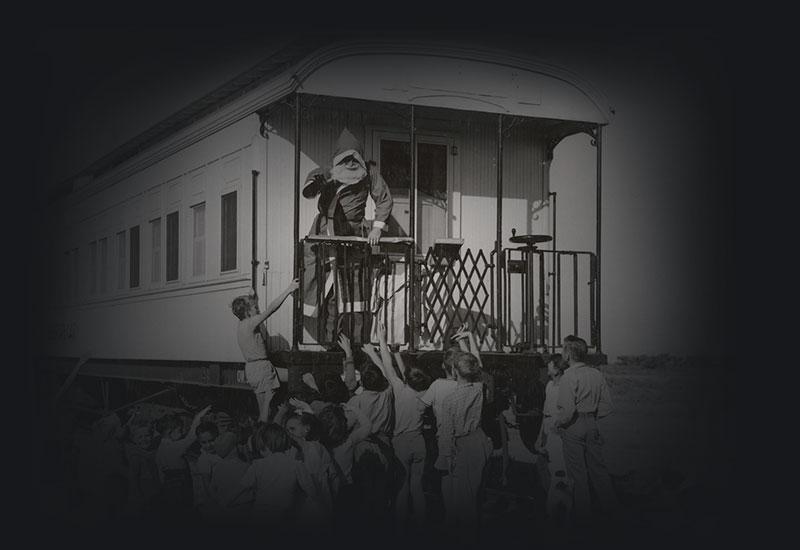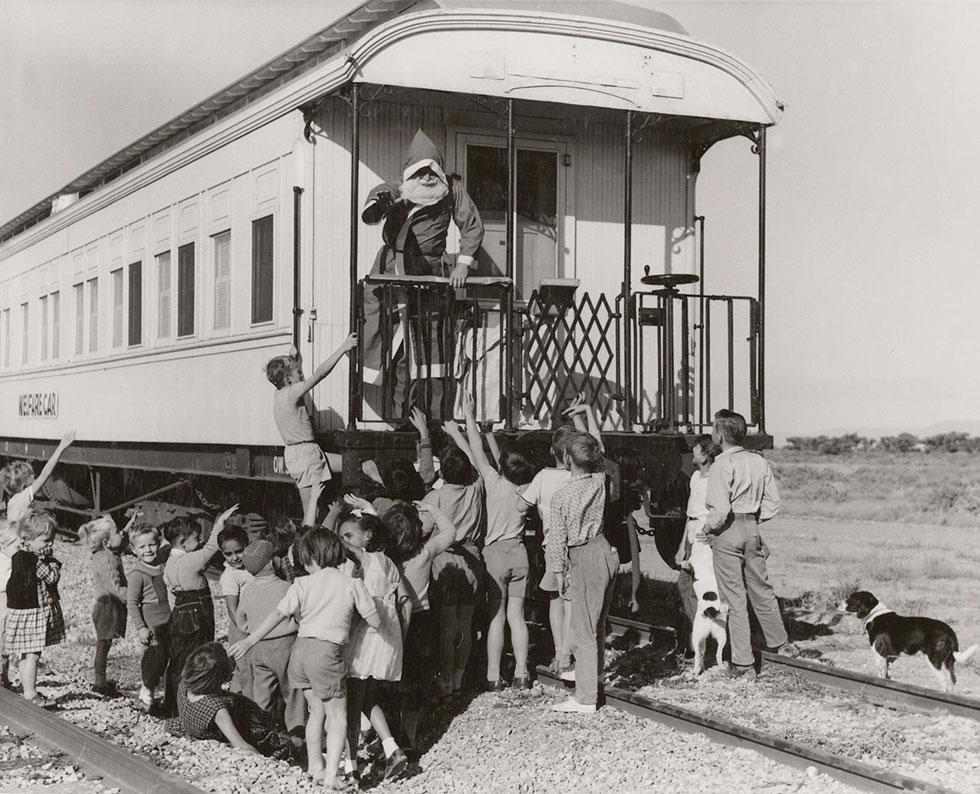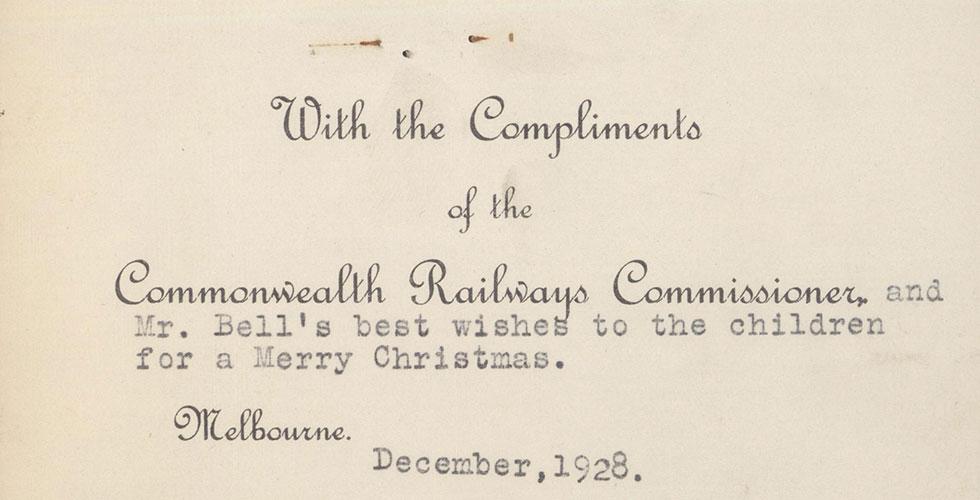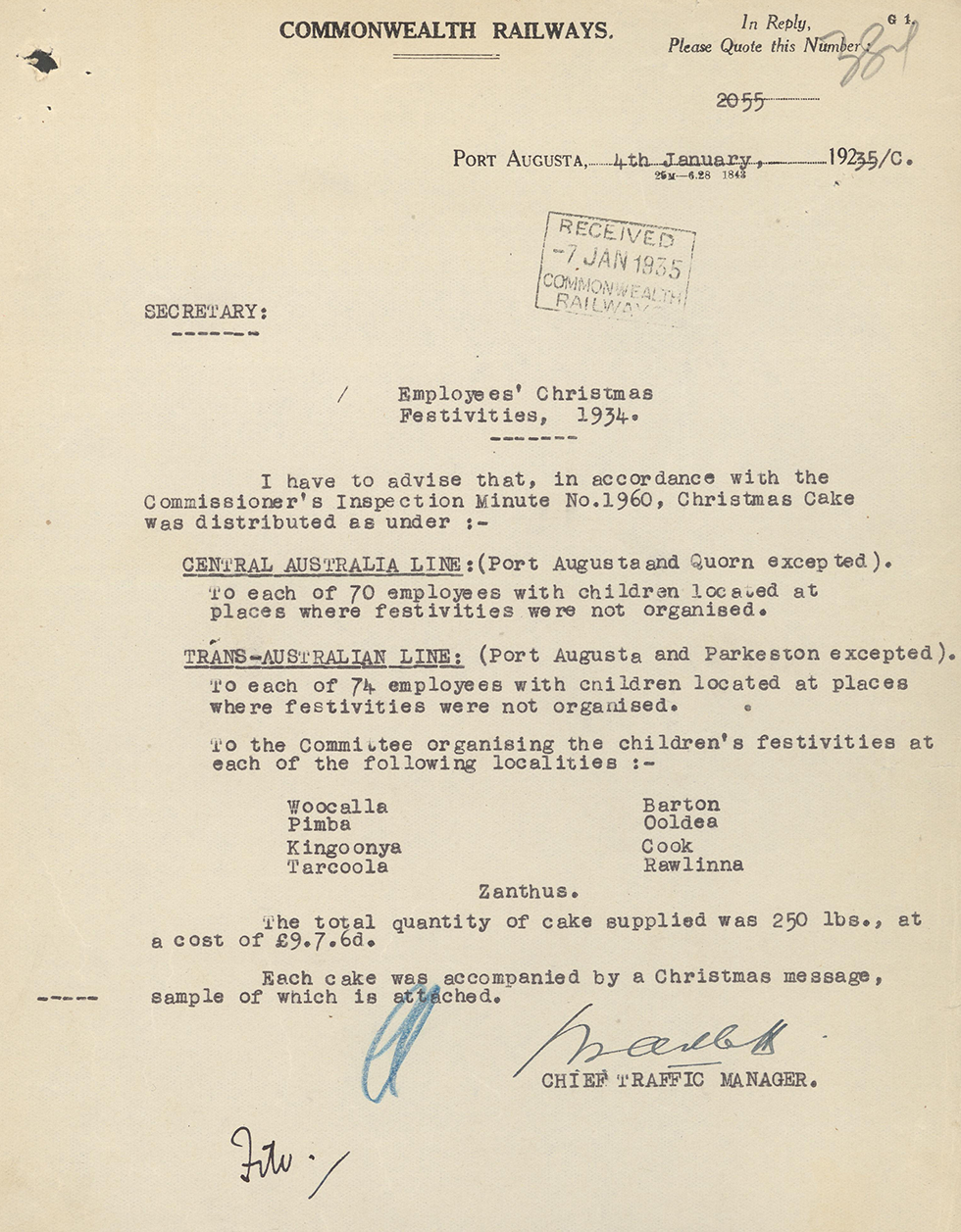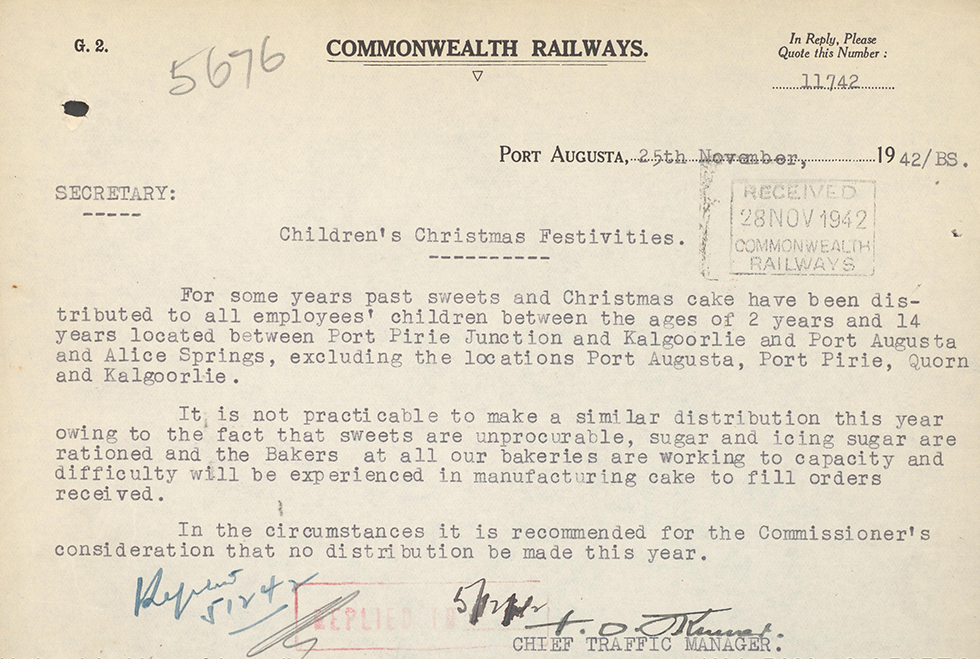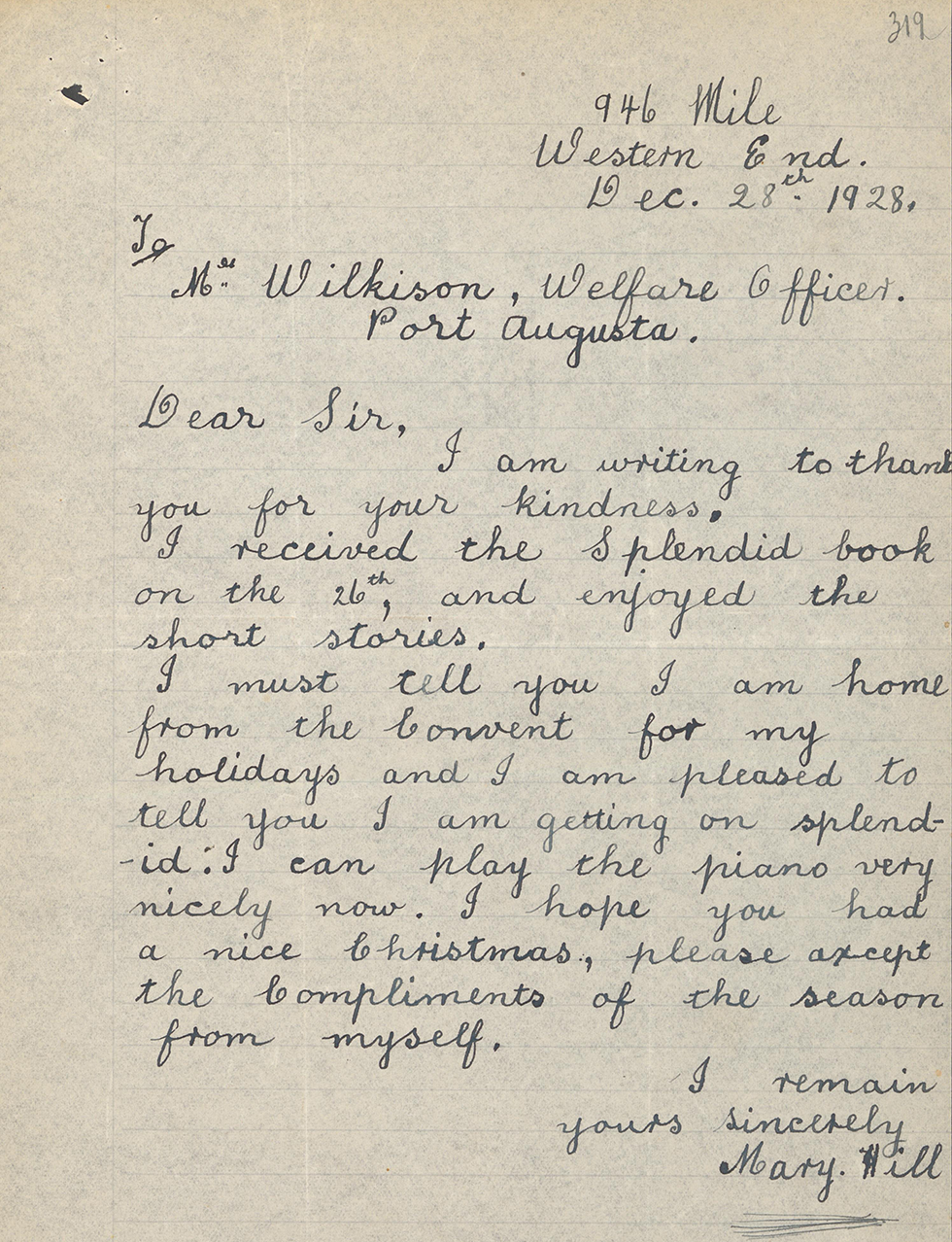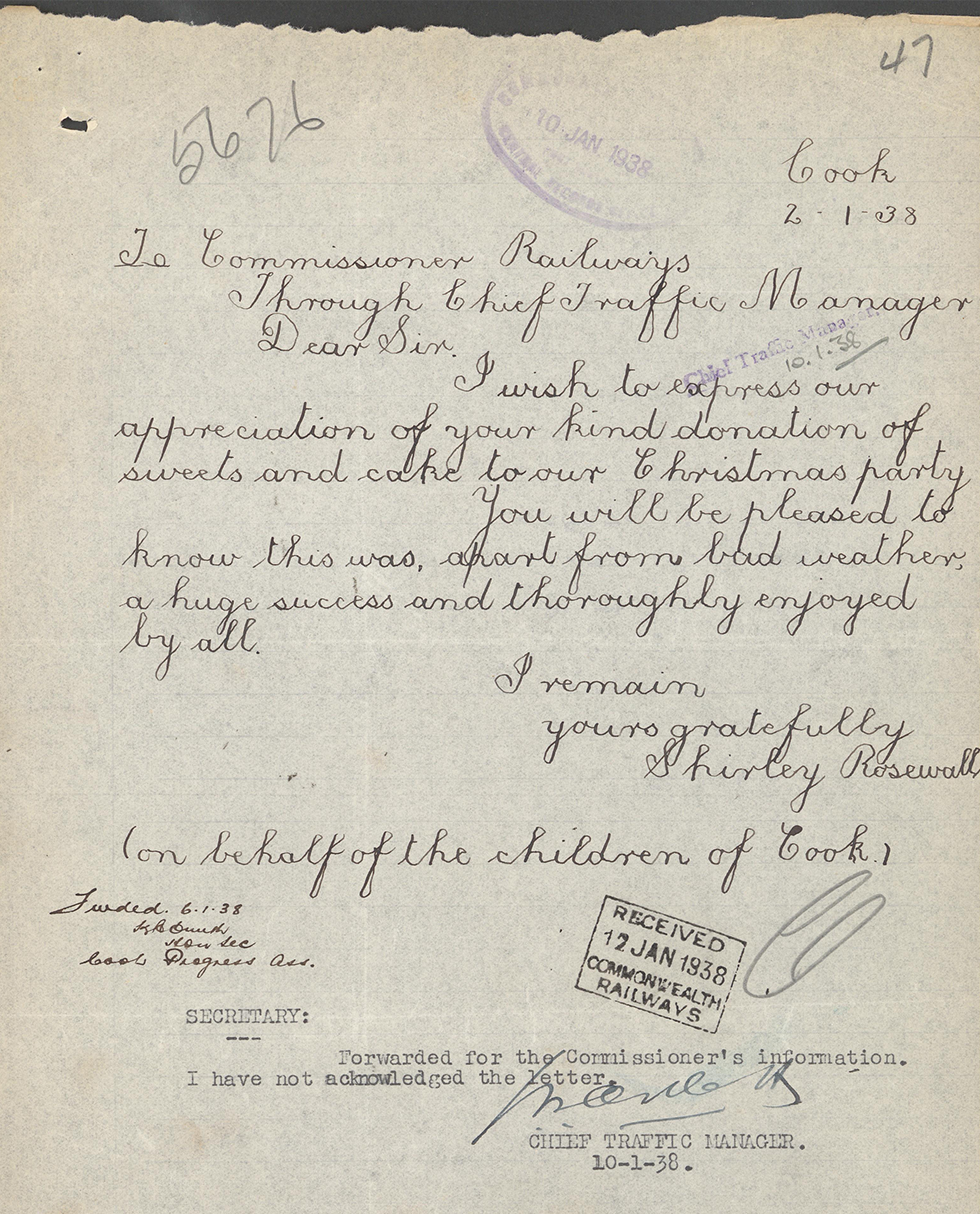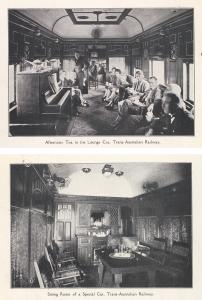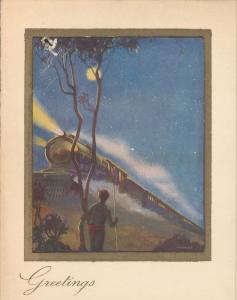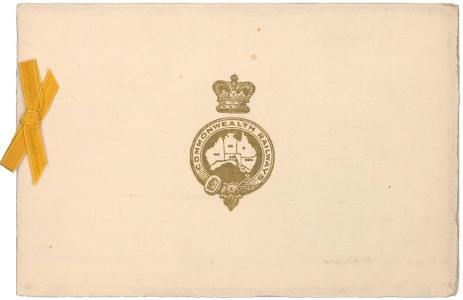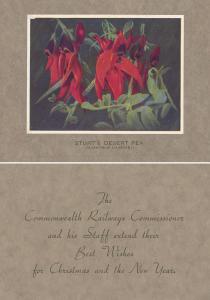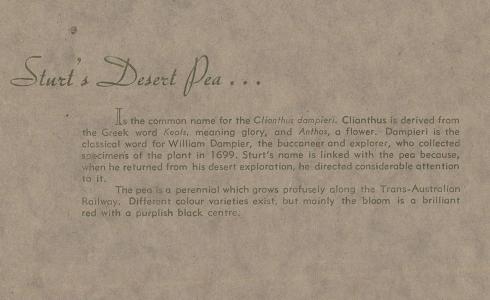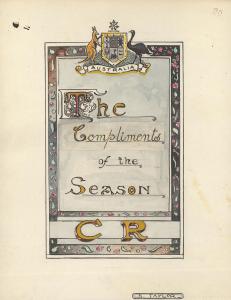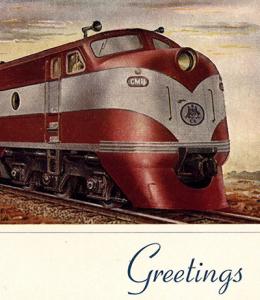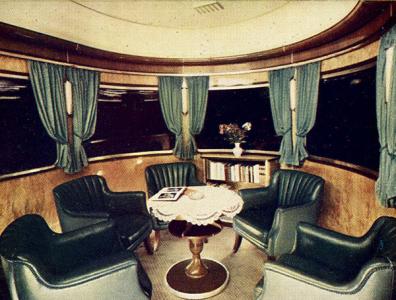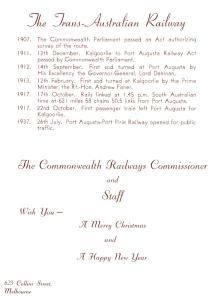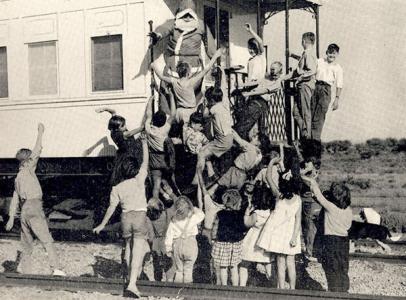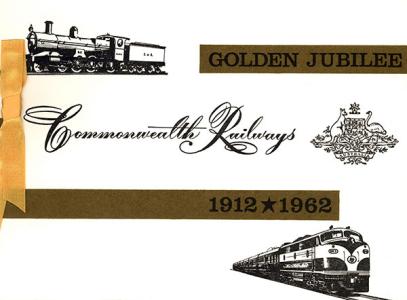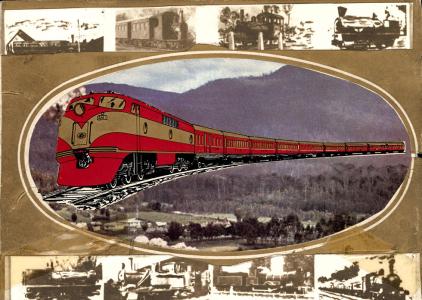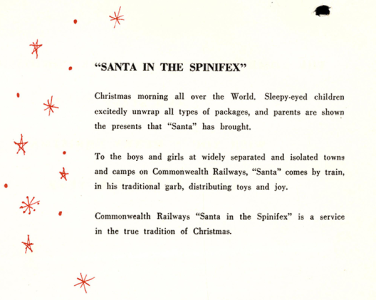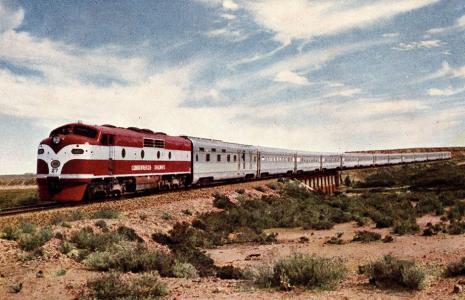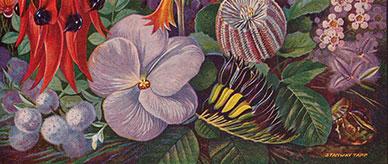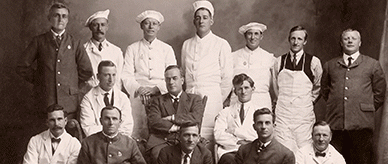The children and families who lived on the Trans-Australian Railway lived in some of the most remote communities in the nation. The organisation of annual Christmas gifts and events was one of the ways the Commonwealth Railways sought to address this isolation. For many, it was the highlight of the year.
The Sunburnt Santa
Alf Harris grew up in Lyons, Western Australia, and like his father worked for the Commonwealth Railways all his life, eventually becoming an engine driver. Harris became known as the 'Sunburnt Santa' or 'Santa of the Nullarbor'. Beginning in 1959, he played the role of Father Christmas, visiting communities along the line each year for 36 years. By 1972 Alf had a special carriage on the Tea and Sugar train decked out as Santa's cave. In 1990 he received an Order of Australia Medal for services to children in remote and isolated areas.

